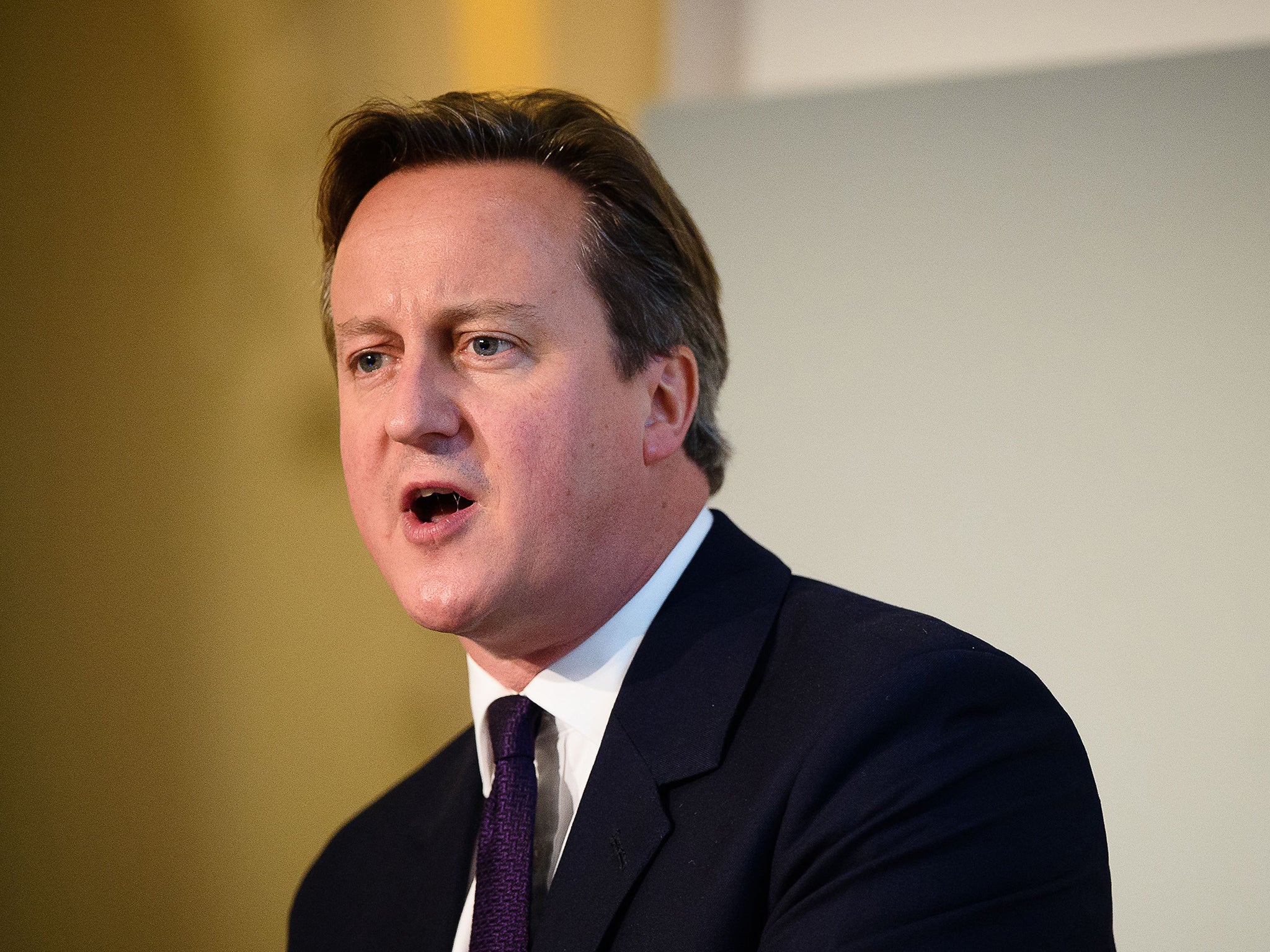Tax credits cuts: This isn’t social justice, Mr Cameron
The losers are people in work, doing the right thing in the eyes of even the most sink-or-swim Tory

Your support helps us to tell the story
From reproductive rights to climate change to Big Tech, The Independent is on the ground when the story is developing. Whether it's investigating the financials of Elon Musk's pro-Trump PAC or producing our latest documentary, 'The A Word', which shines a light on the American women fighting for reproductive rights, we know how important it is to parse out the facts from the messaging.
At such a critical moment in US history, we need reporters on the ground. Your donation allows us to keep sending journalists to speak to both sides of the story.
The Independent is trusted by Americans across the entire political spectrum. And unlike many other quality news outlets, we choose not to lock Americans out of our reporting and analysis with paywalls. We believe quality journalism should be available to everyone, paid for by those who can afford it.
Your support makes all the difference.David Cameron, in his supposedly centrist Conservative Party conference speech this month, promised an “all-out assault on poverty”. How hollow those words will sound to the 3.3 million families who will be affected by the cuts to tax credits from April. These are low-paid people, in work, most of whom have children.
The losses they face are substantial. The House of Commons Library estimates that the average family affected will lose £1,300 of tax credits a year. Even if a quarter of this is made up by higher pay, which is the optimistic estimate by the Institute for Fiscal Studies of the effect of the National Living Wage, that means an average loss of nearly £1,000. That is a huge drop in living standards for families whose household income is mostly less than £20,000 in the first place.
Indeed, the effect of all the measures announced in the July Budget taken together is starkly regressive. The greatest losses over the next five years will be suffered by the poorest third of the population. This is a striking contrast with the record of the Coalition over the past five years. Despite a common perception that the Conservatives favoured the rich, the Liberal Democrats insisted that every Budget should, overall, do nothing to widen the gap between rich and poor.
The central theme of Mr Cameron’s conference speech was that his compassionate Conservative Party has no need of the Lib Dems to pursue “social justice”, but it is contradicted by his actions. As a result, his speech made no sense.
He said, echoing Gordon Brown, that “the best route out of poverty is work”. That was why Mr Brown, as Chancellor, invented and expanded tax credits: to increase the incentive for people to find work. It was a successful policy, but now Mr Cameron is reversing it. He said: “Nearly two-thirds of children in poverty have parents who are in jobs. For them, work hasn’t worked.” Yet the solution to that is not to make them poorer, and to reduce work incentives, which is what George Osborne is proposing to do.
The Prime Minister had some brave words in his speech about the need to “tackle the root causes of poverty”, and we applaud him for identifying children in care and the prison system as two institutional problems close to those roots. But to act on the deep causes of poverty, which might have an effect in a generation’s time, is no excuse for making poor people poorer now. Especially as the losers from tax credits cuts are people who are in work, doing the right thing in the eyes of even the most sink-or-swim Conservative.
The Chancellor protested last week that the British people knew what they were voting for in May: the Conservatives had “signalled” the £12bn-a-year cuts in welfare before the election. So they had, and they had stonewalled every attempt to get them to spell out where exactly the cuts would fall. The House of Lords is within its constitutional rights, therefore, to force the Government to think again.
It is not as if the cuts are necessary. The aim of eliminating the deficit by the end of this Parliament is an arbitrary target: few economists endorse it. Just because Mr Osborne promised it in the last Parliament and failed to deliver it does not mean he has to succeed this time. It could mean that it was a bad idea then and remains a bad idea now.
It might be desirable to balance the books, but not on the backs of the working poor. That is not a balance: it is taking from those hard-working people who have least and giving them warm words in return.
Join our commenting forum
Join thought-provoking conversations, follow other Independent readers and see their replies
Comments